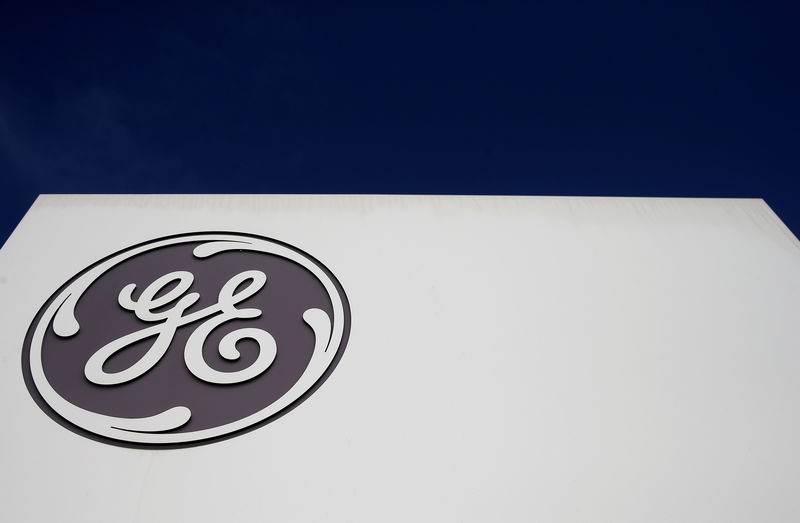By Alwyn Scott and Rachit Vats
(Reuters) - General Electric (NYSE:GE) Co's chief executive surprised investors on Tuesday by forecasting a net cash outflow from its industrial businesses this year mainly due to its ailing power-plant unit, a gloomy outlook that sent shares and bonds tumbling.
"Industrial free cash flow will be (in) negative territory," compared with a positive $4.5 billion last year, CEO Larry Culp said in a webcast interview with JPMorgan (NYSE:JPM) analyst Stephen Tusa, a longtime GE bear.
The shock remark dealt a fresh blow to GE investors who have watched the Boston-based conglomerate slash its dividend as it took massive asset write-downs and huge insurance charges last year. The stock is up nearly 36 percent this year but is still worth less than a third of its value in mid-2016.
"I don't want to sugarcoat" the problems in GE's power business, Culp said, adding the unit likely will lose more cash in 2019 than the $2.7 billion in free cash flow it lost in 2018.
The cash forecast shows "demand for GE's (power) turbines is half what the company forecast two years ago, and this is likely to persist into 2020," said Jim Corridore, an analyst at CFRA, who rates GE a "buy."
The stock swiftly fell below $10, the company's biggest intraday percentage drop in more than three months, which knocked more than $4 billion off GE's market value. The shares closed 4.7 percent lower at $9.89 on Tuesday after falling as much as 7.6 percent.
GE's bonds also declined, with GE Capital bonds the hardest hit. A $2.25 billion issue at 4.5 percent coming due in March 2044 was down 1.65 percent.
"The risk of additional debt ratings downgrades has now increased," said John Inch, an analyst at Gordon Haskett Research Advisors, who rates GE "underperform."
GE's bonds are rated three notches above junk and it is selling assets to reduce its high level of debt.
Culp's comments went well beyond his January warning that industrial free cash flow, which excludes GE Capital dividends and cash from asset sales, would weaken in 2019. Investors are looking closely at GE's cash because of the gap between cash and earnings.
Profits collapsed at GE's power unit in mid-2017 as sales fell and the company failed to deliver on promises to increase margins after a $10 billion acquisition of Alstom (PA:ALSO) of France.
Since then, GE has blamed the power unit's losses, which totaled $22 billion last year, on its own poor management and a shift toward new wind and solar power plants.
The power unit is spending at least $480 million to fix thousands of turbine blades that are at risk after blades broke in 2015 and 2018, causing serious damage to power turbines and coinciding with a drop in GE's market share.
GE also has poured billions of dollars into its insurance business, which includes thousands of money-losing long-term care policies written more than a decade ago. Some experts said GE may have to spend billions more to cover claims.
Culp said the power business would face headwinds for "a couple of years," would not resolve problems with breaking power turbine blades for "a while" and promised to step up restructuring in the business and elsewhere. GE declined to provide restructuring cost estimates. The company is due to publish a financial forecast on March 14.
Culp said on Tuesday that GE would continue to provide cash to its GE Capital unit for the foreseeable future, though probably not as much as the $4 billion it provided last year.

GE Capital used to pay dividends to the parent company, but that stopped after losses mounted at GE's reinsurance business in the second half of 2017.